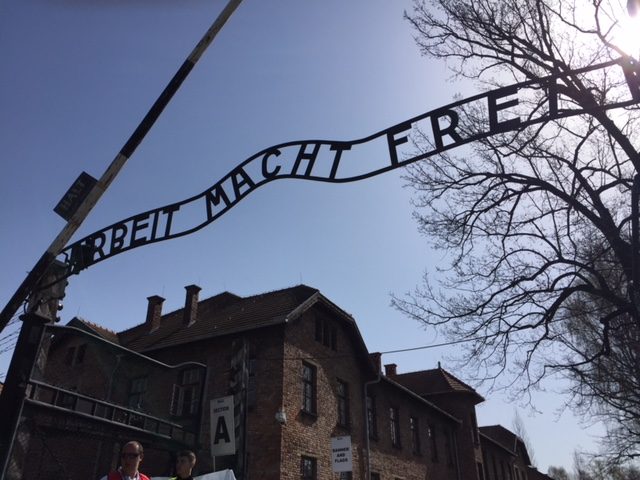January 27 marks International Holocaust Memorial Day, but many Jews have long observed the anniversary of the Holocaust on a different occasion.
The January 27 date is relatively recent, having been adopted by the United Nations General Assembly in 2005 as the date to remember the Holocaust. It marks the anniversary of the liberation of the Auschwitz concentration camp, the most notorious site in Nazi Germany’s extensive system of slave labor and mass extermination.
However, many Jews had already memorialized the Holocaust on a different date, the 27th of the month of Nisan on the Hebrew calendar, which usually falls in April or May. The day is known as “Yom HaShoah Ve-Hagevurah” in Hebrew, which means “Day of (remembrance of) the Holocaust and the Heroism.” Unlike the 27th of January, which sees Jews only as victims, Yom HaShoah marks the anniversary of the Warsaw Ghetto Uprising in 1943, a monument to Jewish resistance.
Moreover, the UN resolution designating January 27 as a Holocaust memorial includes Jews only briefly, among a list of other victims (“countless members of other minorities”). When the new Trump administration issued a statement marking International Holocaust Memorial Day in 2017 that omitted Jews specifically, critics accused Trump of “Holocaust denial,” but the oversight — which is all it was — mirrored the UN’s lack of emphasis on Jews as the primary victims of the Nazis.
Yom HaShoah was first declared by Israel’s parliament, the Knesset, in the early 1950s. As a child growing up in a Jewish community in suburban Chicago, Yom HaShoah was the date we marked the Holocaust — not January 27. And while Israel supported the UN’s effort to remember the Holocaust in some form, many resent the UN for perpetuating antisemitism today in the form of extreme anti-Israel rhetoric and bias, such as denying the 3,000-year Jewish history of the city of Jerusalem.
There are some religious Jews who choose a different date altogether to observe the Holocaust. To them, the appropriate date of mourning is Tisha B’Av, the 9th day of the month of Av, which falls in July or August and marks the anniversary of the destruction of both the First and Second Temple. Tisha B’Av is the saddest day in the Jewish calendar, and for thousands of years has been a catch-all event for observing all Jewish tragedies. It is sad enough: why add more sad days to the calendar?
Thus, while many Jewish communities will participate in International Holocaust Memorial Day on January 27, many Jews, especially in Israel, are more attached to Yom HaShoah (which begins on the evening of April 27 this year), because it sees Jews as more than passive victims (and because the Soviet Union, which was also antisemitic, was primarily responsible for liberating Auschwitz). And a minority of Jews will reserve the full intensity of their Holocaust mourning for Tisha B’Av.
Joel B. Pollak is Senior Editor-at-Large at Breitbart News and the host of Breitbart News Sunday on Sirius XM Patriot on Sunday evenings from 7 p.m. to 10 p.m. ET (4 p.m. to 7 p.m. PT). His new novel, Joubert Park, tells the story of a Jewish family in South Africa at the dawn of the apartheid era. His recent book, RED NOVEMBER, recounts the 2020 Democratic presidential primary from a conservative perspective. He is a winner of the 2018 Robert Novak Journalism Alumni Fellowship. Follow him on Twitter at @joelpollak.

COMMENTS
Please let us know if you're having issues with commenting.